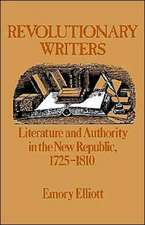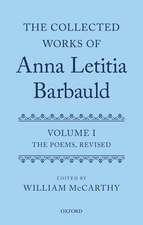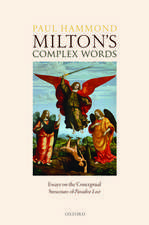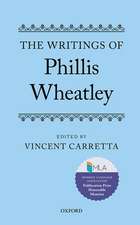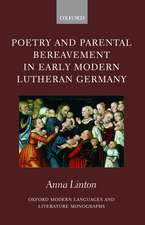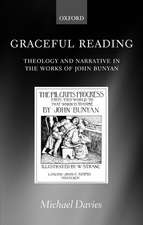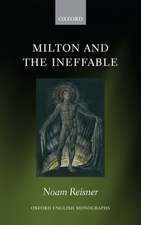Milton and the People
Autor Paul Hammonden Limba Engleză Hardback – 29 mai 2014
Preț: 431.01 lei
Preț vechi: 781.84 lei
-45% Nou
Puncte Express: 647
Preț estimativ în valută:
82.48€ • 86.73$ • 68.15£
82.48€ • 86.73$ • 68.15£
Carte tipărită la comandă
Livrare economică 05-11 aprilie
Preluare comenzi: 021 569.72.76
Specificații
ISBN-13: 9780199682379
ISBN-10: 0199682372
Pagini: 286
Dimensiuni: 147 x 222 x 25 mm
Greutate: 0.48 kg
Editura: OUP OXFORD
Colecția OUP Oxford
Locul publicării:Oxford, United Kingdom
ISBN-10: 0199682372
Pagini: 286
Dimensiuni: 147 x 222 x 25 mm
Greutate: 0.48 kg
Editura: OUP OXFORD
Colecția OUP Oxford
Locul publicării:Oxford, United Kingdom
Recenzii
Hammonds is a scholarly, accessible work that pays extremely close attention to details and offers abundant context for scholars and students of Miltons political thought. Students of mid-seventeenth-century English political thought might also find the book useful, as the legion of primary sources (and the excursus into Hobbess political philosophy) helpfully contextualizes Miltons thought by comparing it to his contemporaries, many of them Miltons polemical adversaries.
excellent and long overdue ... Hammond's is the first book-length, in-depth study of the very basis of Miltonâs politics, his complex attitudes toward his fellow countrymen. In eminently readable and sometimes witty prose exhibiting a comprehensive knowledge of the intellectual, linguistic, and political contexts in which Milton wrote, Hammond traces Milton's shifting attitudes toward the English people from his Prolusions to Samson Agonistes ... Its linguistic scholarship is so replete and its prose so lucid.
This is a distinguished book, combining close reading of Miltonic texts with sensitivity to their political, religious and intellectual contexts. Hammond's argument is deeply learned, elegantly written and full of fresh insights that open up significant new perspectives on Milton's conceptions of 'the people' and 'the vulgar'.
When Milton sets out an argument for the superiority of the virtuous minority in his Defensio Secunda, Hammond observes that the shift from the subjunctive to the indicative in Latin exemplifies the triumph of hope over experience (p. 176). It is details like that, so pellucidly expressed, that make this book a great read.
excellent and long overdue ... Hammond's is the first book-length, in-depth study of the very basis of Miltonâs politics, his complex attitudes toward his fellow countrymen. In eminently readable and sometimes witty prose exhibiting a comprehensive knowledge of the intellectual, linguistic, and political contexts in which Milton wrote, Hammond traces Milton's shifting attitudes toward the English people from his Prolusions to Samson Agonistes ... Its linguistic scholarship is so replete and its prose so lucid.
This is a distinguished book, combining close reading of Miltonic texts with sensitivity to their political, religious and intellectual contexts. Hammond's argument is deeply learned, elegantly written and full of fresh insights that open up significant new perspectives on Milton's conceptions of 'the people' and 'the vulgar'.
When Milton sets out an argument for the superiority of the virtuous minority in his Defensio Secunda, Hammond observes that the shift from the subjunctive to the indicative in Latin exemplifies the triumph of hope over experience (p. 176). It is details like that, so pellucidly expressed, that make this book a great read.
Notă biografică
Paul Hammond is Professor of Seventeenth-Century English Literature at the University of Leeds, and a Fellow of the British Academy. He was previously a Prize Fellow of Trinity College, Cambridge.

